#malaysia citizenship
Explore tagged Tumblr posts
Text
westerners usually react the same way when i talk about being transgender in malaysia w the assumption that even going to malaysia as a gay or trans person will get you immediately arrested and killed or something as though trans people don't live there every day and like. buy groceries and pay bills and walk around. gay people live their whole lives there. that isn't to say there isn't suffering but that people live and go to work and stuff no matter what. not even getting into the fact that any state's repression of lgbt people anywhere will not be targeted primarily at western tourists lmfao
#ones class positions are a determining factor in these cases. people with money in any country no matter how harsh the laws#are not treated the same way as people in poverty people who lack citizenship people who belong to minority and indigenous groups etc etc#accessing medical care as a trans person in a private hospital in malaysia is very different from doing so in a public hospital#having a foreign passport shields someone from a lot of things#so on and so forth
118 notes
·
View notes
Text
Sisters Denied Citizenship Beyond the Grave: A Family Ask Gov't Why?
In Petaling Jaya, A Rukkumani battles a heart-wrenching injustice. Her sister, A Jaya Letchmi, was born in Kuala Lumpur in 1948 to a Malaysian father and died in 2021 without citizenship—despite a 2020 application. Four years later, in February 2025, a rejection letter dated December 2024 arrived, without explaination. Their mother, RP Saraswathy, born in 1933, faced the same fate, dying at 85…
0 notes
Text
History 101: Famous Malaysian Indians & Their Major Achievements
Malaysia’s rich cultural tapestry is woven together by the diverse communities that call this beautiful country home. Among these communities, the Indian diaspora has played a significant role in shaping the nation’s history and development since achieving independence, known as Merdeka, in 1957. Image source: Aliran Continue reading History 101: Famous Malaysian Indians & Their…
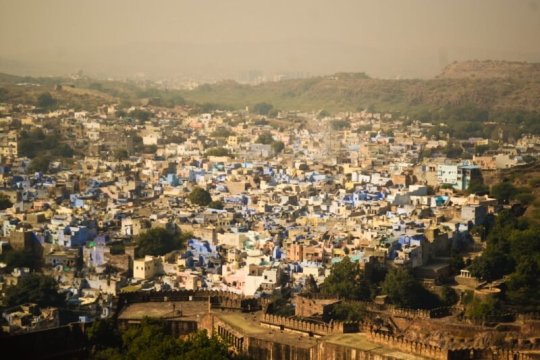
View On WordPress
1 note
·
View note
Text
The Russian State Duma has introduced a bill to ban the adoption of Russian children by citizens of countries where gender transitions are legal.
What countries would be affected?
The ban would affect not just E.U. member states but also countries like Bolivia, Bhutan, Kyrgyzstan, and Pakistan, among others. However, according to an explanatory note attached to the bill, the restrictions are primarily aimed at NATO countries.
What countries would be left?
Judging by a report from the International Lesbian, Gay, Bisexual, Trans and Intersex Association (ILGA), as of 2020, there were 39 countries whose laws would likely exempt them from Russia’s proposed ban. Most of these countries are in Africa, South America, and Asia.
Algeria
Benin
Burundi
Cameroon
Democratic Republic of the Congo
Egypt
Gambia
Liberia
Morocco
Nigeria
Rwanda
Tanzania
Tunisia
Uganda
Jordan
Myanmar
Brunei
Oman
Philippines
United Arab Emirates
San Marino
Bahamas
Belize
Dominica
El Salvador
Grenada
Haiti
Honduras
Nicaragua
Kiribati
Marshall Islands
Tonga
Vanuatu
Kuwait
Malawi
Indonesia
Malaysia
Lebanon
South Sudan
Do citizens of these countries currently adopt many Russian children?
None, at least according to official statistics. In 2023, foreign citizens are recorded as having adopted just six children from Russia; in five cases, the parents were Italian citizens, and in one case, they were French citizens. Both Italy and France allow gender transitions.
In its summary of last year’s adoptions by foreigners, the Russian Supreme Court mentions 16 cases; however, in the 10 cases not included in official statistics, the adopting parties were the children’s stepfathers. Their citizenship was not included in the summary due to privacy laws, but the proposed amendments would not affect them regardless of citizenship, because the process of adoption by stepparents is regulated by different legislation.
Only six in total? Were adoptions by foreigners more common before the war?
Yes, though the adoption rate of Russian children by foreign parents began to fall as early as 2012, when Russia banned the adoption of Russian children by U.S. citizens. In 2012, foreign citizens adopted 2,604 Russian children; in 2019, they only adopted 240.
13 notes
·
View notes
Text
'Social Media Activism: Connecting or Dividing Us?'
By: naomicindy

Have you ever been scrolling through Instagram or X and stumbled upon a post that makes you stop and think? Maybe it’s a hashtag campaign, a call to action, or even a simple story about someone standing up for what they believe in. Social media has totally redefined how we talk about the things that matter, turning everyday users like us into activists—sometimes without even realizing it. Platforms like Instagram, X, and TikTok have become the go-to places for activism and protest, whether it’s amplifying global movements or sparking heated debates about politics (Kaphle, 2023). But as exciting as this all sounds, there’s a lot more to social media activism than just sharing posts. From its power to connect people worldwide to the struggles with misinformation and online debates that will affect the real world, there’s a deeper story to explore.

First, let’s talk about why social media is such a big deal for activism. It’s not just about going viral (although, let’s be real, that helps). It’s about giving everyone a voice, no matter who they are or where they’re from. These platforms are basically megaphones for our generation—they take an idea from one person and turn it into a global conversation. Remember the ALS Ice Bucket Challenge back in 2014? It was literally everywhere. You couldn’t open Facebook without seeing someone pour ice water over their head, calling out their friends to do the same. The idea was simple: raise awareness and money for ALS research, and it worked—big time. In just six weeks, the challenge raised $115 million and helped fund research breakthroughs for ALS treatment.
But let’s bring it closer to home. Recently, I’ve been scrolling through posts from Malaysian news outlets like NST and The Star Online, and wow, the comment sections are a goldmine of public opinion—good and bad. NST’s posts about McDonald’s filing a defamation lawsuit against the Boycott, Divestment, and Sanctions (BDS) movement. For context, BDS is a global campaign pushing for economic and political pressure on Israel to address Palestinian rights. The comment section here was anything but chill. One commenter brought up religious concerns, while another pointed out the impact of McDonald’s on local jobs. The conversation quickly shifted to how boycotts could hurt Malaysians working at these companies, especially those supporting families. In another post, NST reported on the Malaysian public’s general stance on boycotts. Again, the comment section was a war zone. Some people felt strongly about their faith providing all they need, while others argued for a more humanitarian approach, focusing on the real-world consequences for everyday Malaysians. Social media makes activism accessible. You don’t need to be a politician or a celebrity to make a difference. You can post a TikTok, join a Twitter thread, or even just hit “share” on a post that resonates with you. Suddenly, your voice is part of a much larger movement.

Social media activism is a double-edged sword (Nat, 2024). It connects people, raises awareness, and even drives real-world change—like the ALS Ice Bucket Challenge or global climate strikes. But it also has the potential to divide us, as seen in the boycotts and humanitarian debates in Malaysia. This is where digital citizenship comes in. It’s not enough to just post about a cause or share a hashtag—you’ve got to know what you’re supporting and why (Grossel, 2020). That means fact-checking before you hit “share” and thinking critically about the content you see.
So, how can we make sure we’re using social media in a way that actually helps? Here are a few things I’ve learned (How to use social media in positive way 2023):
Educate Yourself First Before jumping on a trend, take the time to research. Why does this issue matter? Who does it affect? The more you know, the more impactful your activism will be.
Engage, Don’t Just Share Comment, start a discussion, or even create your own content. Social media is a two-way street, and the more you engage, the more you’ll learn (and teach others).
Be Open to Different Views It’s easy to stay in our little bubbles online, but stepping out of them can help us understand the bigger picture. Listen to people with different perspectives—it’s uncomfortable but necessary.
Support Offline Actions Social media is a great starting point, but real change often happens offline. Whether it’s donating, volunteering, or attending events, take your activism beyond the screen.

At the end of the day, social media is just a tool—it’s how we use it that matters. We can let it divide us, or we can use it to bring people together and spark meaningful change. So, what do you think? Is social media activism bringing us closer or driving us further apart? Let’s talk about it in the comments!

Grossel, S. (2020, October 6). Your guide to being a good digital citizen. Temple Now | news.temple.edu. https://news.temple.edu/nutshell/2020-10-06/digital-citizenship-0 How to use social media in positive way. Go to Ulster University. (2023, April 14). https://qa.ulster.ac.uk/blog/how-to-use-social-media-in-positive-way/ Kaphle, A. (2023, October 23). The politic. The Politic. https://thepolitic.org/article/social-media-for-social-change-how-activism-is-impacted-by-instagram-twitter-and-tiktok Nat, B. (2024, March 15). Social Media & Activism: The double-edged sword. Algonquin College Social Media Certificate Program. https://algonquincollegesocialmedia.wordpress.com/2024/03/14/social-media-activism-the-double-edged-sword/
2 notes
·
View notes
Text
From Memes to Political: How Jokes Shape Our Views
MDA2009 DIGITAL COMMUNITIES
!! Friendly reminder: Before you read and begin with this week's discussion, let me warn you guys real quick that I am not a “biG FaN” of Politic (I’m being serious and not even joking). If you spot any errors or have fun facts to share, let me know!
Now, let me kick off with some big facts that memes are everywhere these days, especially in Malaysia. For example, you can easily get your daily meme dose through MGAG Instagram page where they will share anything that is viral from day to day and share it to the audience just to make people smile after going through a hard week. Whether it’s a joke about politicians flip-flopping on policies or a sarcastic take on the latest political scandal, memes have taken over our news feeds. If I’m being honest, politics isn’t just confined to parliament anymore, it’s right there, in front of our phone screen through WhatsApp group chat, Facebook and Twitter (X) timelines, mixed with viral videos and jokes that will leave us laughing and wondering, “Hold up, is this actually true?”.

example MGAG meme picture cr: MGAG
Here’s the big question,
Do these “memes offer” any real insight into politics, or are they just a distraction? Well spoiler alert, I think it's both for me. Memes might seem like harmless fun, but they play a serious role in shaping public opinion and political engagement, especially for the younger generations.

Where does the word Meme, Meem or Meh-may, come from?
I know some people are wondering what does memes mean? According to (Benveniste, 2022), the term "meme" has appeared in the New York Times Crossword a remarkable 60 times since its debut in the 1940s (Benveniste, 2022). While pinpointing the very first meme is challenging, British evolutionary biologist Richard Dawkins is credited with coining the term in his 1976 book, The Selfish Gene. Dawkins originally likened a "meme" to a "phoneme," which is the smallest sound unit in speech, or a "morpheme," the smallest meaningful component of a word, according to Kirby Conrod, a linguistics professor at Swarthmore College (Benveniste, 2022).

At first, memes were all about humor, silly jokes that went viral for no reason. But over time, they evolved into a kind of social commentary. Consider Malaysia as an example. Memes like “Malu Apa Bossku”, connected to Najib Razak, the former sixth Prime Minister of Malaysia, helped rebrand him with a more approachable image despite his involvement in scandals. Political parties and leaders use social media as a tool to promote as well as condemn rival parties and leaders, including character assassination (Zamri et al., 2020). Memes simplify complicated political situations and make them easier to understand, especially for you people.


Then we have Zunar, a political cartoonist and total legend in space, who uses his work to push back against Malaysia's repressive structures. His cartoons go beyond humor; they provide an alternative view of Malaysian history and national identity, challenging official narratives around culture, nationhood, and citizenship (Yean, 2011).
Through his art, Zunar takes bold jabs at politicians and policies, crafting cartoons that often spread widely as memes. These memes not only reimagine politics with humor but can also foster a sense of togetherness, shaping identities and highlighting the divide between 'us' and 'them' in political discourse (Mortensen & Neumayer, 2021). Zunar’s work highlights what many people are feeling and gets them talking about important issues. His cartoons are a perfect example of how humor can be a form of protest and resistance.

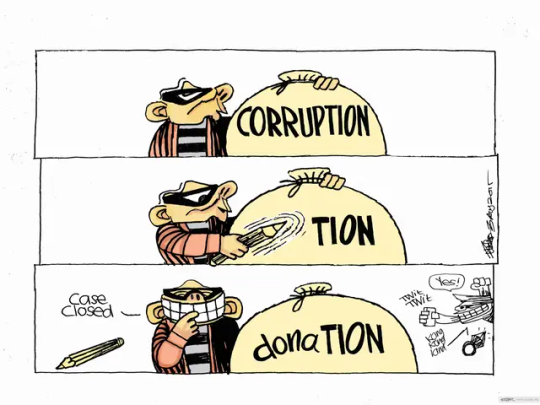
Zunar's artwork about political
Why Memes Work and Their Limits in Political Understanding
Memes are effective because they make politics feel less intimidating, fostering solidarity among like-minded individuals and making political critiques more accessible. However, while this humor fosters engagement, there’s also a risk of trivializing serious issues or fueling hyper-polarization, which can sometimes limit how widely these memes circulate and may push users toward other forms of civic engagement (Penney, 2019).
For many young Malaysians, memes simplify complex issues and make them more relatable, turning topics that might seem overwhelming into something fun and shareable. This helps build a sense of connection, where people feel they’re not alone in their views.

However, while memes can grab attention, their humor can also trivialize serious issues, reducing complex political discussions to jokes. This can lead to hyper-polarization, where people take sides quickly, hindering meaningful conversation. Additionally, memes often rely on emotions like sarcasm or anger, which can rally people but are less conducive to in-depth discussion.

For a lot of young Malaysians who might not follow every move in parliament, memes break down complicated stuff in a way that’s fun and relatable. They turn big topics into things you actually want to share and chat about. So in the end, memes don’t just make politics easier to follow but they make it something you actually want to talk about with your friends.

Final Thoughts,
Do you think memes help us understand politics? Well it's a yes and no. They’re a quick, entertaining way to engage with issues, but memes alone aren't enough, we need to look beyond the jokes and dig into the fact too.
Political memes, like Zunar’s art, can be entertaining, educate, and inspire change. However, they should be seen as a starting point, not the entire story. While memes can make us laugh, it's important to dig deeper and stay informed.

References
Abdul Latif, R., & Elgarrai, S. (2021). The Power of Political Cartoons: A Case Study of Zunar’s “Twit Twit Cincin.” Jurnal Komunikasi: Malaysian Journal of Communication, 37(1), 146–180. https://doi.org/10.17576/jkmjc-2021-3701-09
Benveniste, A. (2022, January 26). The Meaning and History of Memes. The New York Times. https://www.nytimes.com/2022/01/26/crosswords/what-is-a-meme.html
Mortensen, M., & Neumayer, C. (2021). The playful politics of memes. Information, Communication & Society, 24(16), 2367–2377. https://doi.org/10.1080/1369118x.2021.1979622
Penney, J. (2019). “It’s So Hard Not to be Funny in This Situation”: Memes and Humor in U.S. Youth Online Political Expression. Television & New Media, 21(8), 152747641988606. https://doi.org/10.1177/1527476419886068
Yean, S. C. (2011). A cartoonist’s resistance. Inter-Asia Cultural Studies, 12(3), 420–429. https://doi.org/10.1080/14649373.2011.578805Zamri, M., Anuar, Z., & Jalli, N. (2020). “Malu Apa Bossku?” Najib Razak’s Political Rhetoric on Facebook Post 2018 General Election. Forum Komunikasi, 15(1). https://ir.uitm.edu.my/id/eprint/42134/1/42134.pdf
5 notes
·
View notes
Text
Jubilee Debates, TikTok, and American Politics: A Malaysian Youth's Perspective
MDA20009 Digital Communities │ Week 5: Digital Citizenship 1: Political Engagement
So what place does a Malaysian, (that has no political knowledge) have to have a say in this? American politics. In this day and age, social media has played a significant role in politics, which is hard to ignore—even a small country like Malaysia is kept in the loop of the chaos of American democracy, especially during the current Trump-Harris election. No doubt that it is an educational experience for many of us to witness the dynamics of U.S. politics unfold through platforms like TikTok and YouTube. Well, I guess if it's already displayed on social media for the eyes of others, then anyone can at least have a say in this.

A Global Phenomenon
American politics is accessible to a worldwide audience all thanks to modern communication technologies. Globally, people may quickly get news and comments about the U.S. election because of platforms like TikTok, Instagram, and X (previously Twitter). Foreigners are also compelled to watch the discussions and political comments that shape the U.S. elections, which have turned into a spectacle.

When Woke Meets Conservative
A prime illustration of this is how the debates organized by Jubilee, like "1 Liberal Teen vs. 20 Trump Supporters", have managed to draw hordes of viewers. Platforms like Jubilee tackle complex political issues more easily because they assemble both sides and make it entertaining. For example, it is one thing for the audience to watch a Dean Withers-type person standing in front of a crowd with opposing views but firmly standing his ground. It simplifies American political issues for domestic audiences and even provides insight to foreign viewers about America's political landscape, which the mainstream media may not adequately do.

What’s especially fascinating is how quickly clips from these debates go viral on platforms like TikTok. Short snippets of strong arguments, memorable quotes, or heated exchanges get shared, re-shared, and commented on by millions. These clips transcend their original platform, appearing on TikTok feeds, Instagram Reels, and even Reddit threads. Social media’s algorithms tend to push this viral content to wider audiences, which means these political discussions get incredible exposure, reaching people who might not have initially sought them out.
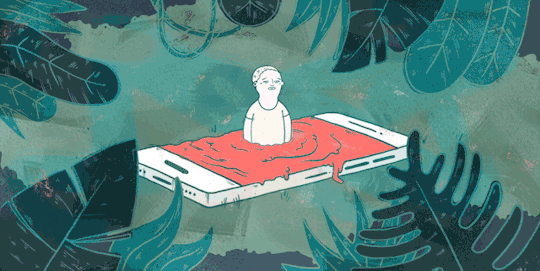
Social Media’s Grip on Today's Youth
Political marketing through TikTok and YouTube has become very popular among the youth, who are likely to rely on them rather than the news. Secure and friendly debates can trigger creativity, with interesting short videos getting the attention of the politically disinterested.
In other words, social media sites' impact in shaping the users' political opinions can also be viewed from a constructive and negative perspective. The content is usually aggressive and abusive, promoting divisiveness and unhealthy rivalries. Most studies claim that "social media grows political content that is mostly unhealthy" (Platt, 2024). However, this way of doing things will worsen as the election process approaches. Political smearing worked as an effective bait, so social media websites, in turn, encouraged their users to avail such content even more, leading them to have an exaggerated belief on how most people felt about an issue. Platt (2024) also notes that if social media is one's primary means of communication, one should anticipate political blowback and violence. Social media does provide access to knowledge, but it also encourages the creation of "filter bubbles". These are the bubbles where people only interact with content that agrees with their opinion and helps further entrench existing beliefs.
Amidst all this, social media has revolutionised how people view politics by bringing the concept of the "everyday expert" to the forefront. For example, individuals such as Dean Withers from the Jubilee video, who has neither run for office nor works as a commentator, still hold a great deal of influence by simply sharing his views with great emotion. This is an evolution of what Cunningham (2024) refers to as 'rage bait' content, where disputes tend to be more espoused to engage the audience, in most cases, for their anger and arguments, but not for any constructive communication. Influencers like Withers embody this shift in information, where ordinary people become the source of public opinion and cause polemics. As Cunningham (2024) noted, such interactions correspond to the increasing normative demand for emotional and conflict-inducing material usually found online.
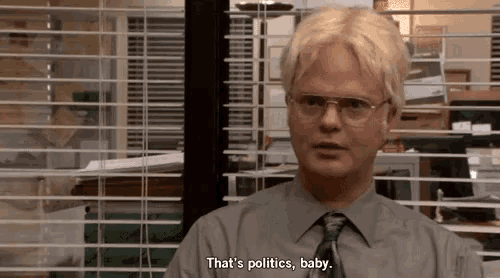
Watching and Learning
For the people outside of the U.S., following American politics on social media is interesting but educational at the same time. It provides a glimpse of the governance systems, democracy, and social discourse, which makes one think about how the democratic processes in different parts of the world work. We are mere spectators and students, observing how a living democracy functions, its merits and demerits.
The role of social media in politics is not that straightforward. It makes conversations international and opens up new people, but it could also promote conflict and fake news, which undermines journalistic ethics. It is fair to say that as we watch TikTok, YouTube or Instagram, we are part of the global audience who is watching democracy unfold in real time, and as a result, we have to be careful how it all plays out.

List of References:
Cunningham, K. (2024, October 10). 1 woke teen vs. 20 Trump supporters: The new age of viral political videos. Vox. https://www.vox.com/culture/376748/jubilee-politics-debate-charlie-kirk-ben-shapiro-liberal-conservative
Platt, T. (2024, March 13). Political rage on social media is making us cynical. University of Michigan News. https://news.umich.edu/political-rage-on-social-media-is-making-us-cynical/
2 notes
·
View notes
Text
The Bajau people have been crisscrossing the waters of the Sulu Sea for centuries, the world’s only community of self-sufficient sea nomads. To the Bajau, a “border” is merely the farthest distance they can reach by boat. ... Life for the Bajau became more complex in the colonial era when Malaysia, the Philippines and Indonesia created maritime borders in the Sulu zone: these frontiers were established in the Madrid protocol of 1885, without bothering to consider the distribution and diversity of the ethnic groups who lived there. But it was the Malaysian Immigration Act of 1959/1963 that most significantly changed things for the Bajau. This legislation failed to distinguish between asylum seekers, refugees, irregular migrants and undocumented or stateless individuals. ... As of 2023, only about 100 to 200 Bajau still live in the traditional “Lansa” houseboats near the eastern Malaysian city of Semporna. Lacking citizenship or formal rights to settle on the Borneo mainland, the Bajau of Philippine origins still preserve maritime hunting techniques passed down through generations. ... Out in the vastness of the Sulu Sea, the Bajau stand as emblems of self-sufficiency, but once they set foot ashore they find themselves relegated to the lowest social class. Their stateless status deprives them of government privileges: the children cannot access public schools and adults are prohibited from finding formal employment.
13 notes
·
View notes
Text
Digital Citizenship and Political Engagement: A Double-Edged Sword
Social media was supposed to revolutionize politics, right? Platforms like Twitter and Facebook promised to give power back to the people, connecting us directly to our leaders and each other. And, in some ways, they delivered. Today, hashtags spark global movements, politicians bypass the press to speak directly to voters, and viral memes turn political gaffes into public debates. But here’s the catch: it’s not all sunshine and democracy. Like most things in life, the reality of digital political engagement is way messier and way more interesting.
The Good: Social Media as a Game-Changer
First, let’s give credit where it’s due. Social media has absolutely transformed how politics works. Take Donald Trump’s 2016 presidential campaign, for example. Whether you loved or hated him, you couldn’t ignore him and neither could your Twitter feed. Trump’s tweets weren’t just soundbites, they were a direct line to millions of voters, shaping public opinion in real time. As Enli (2017) points out, his “authentic outsider” vibe on social media made him seem relatable to supporters, and that relatability translated into votes.
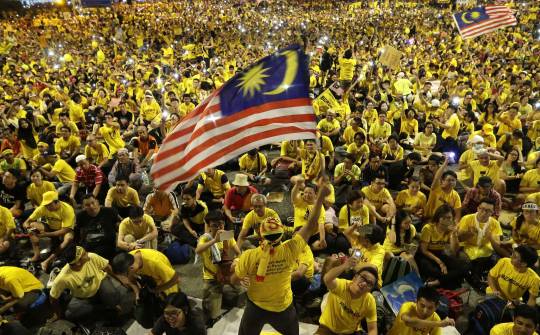
But it’s not just about big names. Grassroots movements like Malaysia’s Bersih 2.0 also used social media to mobilize support and demand electoral reform. Johns and Cheong (2019) describe how Bersih activists used Facebook and Twitter to bypass traditional media censorship, rallying people with emotional posts and hashtags. That “networked affect” those raw, viral moments created a sense of shared purpose that brought thousands into the streets.
The Bad: The Dark Side of Digital Citizenship
Of course, there’s a flip side to all this. Social media is great at amplifying voices, but it’s also great at creating echo chambers. Algorithms feed us what we want to see, which is fantastic for keeping us entertained but terrible for meaningful political discourse. Instead of healthy debates, we get polarized shouting matches where everyone thinks they’re right, and no one’s actually listening.
And let’s not forget misinformation. Remember the Cambridge Analytica scandal? Facebook data was weaponized to target voters with political ads designed to manipulate their choices. It’s a stark reminder that while social media feels empowering, it can also be used to exploit us. As Choi and Cristol (2021) point out, true digital citizenship requires more than just access, it demands education, critical thinking, and inclusion.
The Meh: Low-Cost Engagement
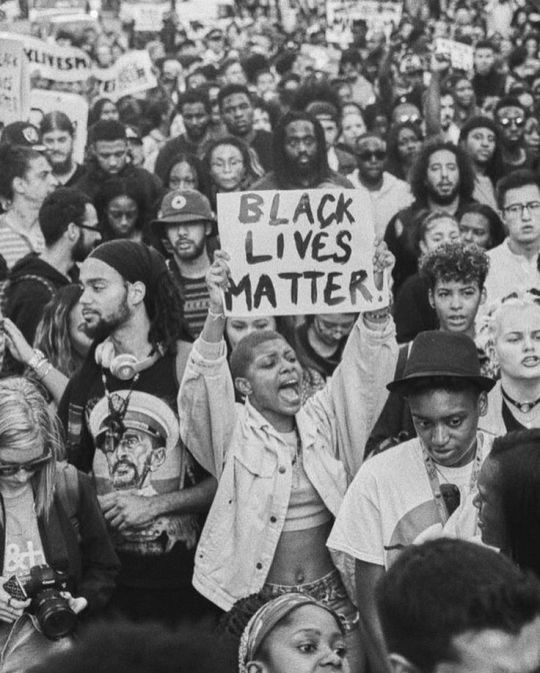
Then there’s the issue of “low-cost” political engagement. Retweet a hashtag, like a post, or share a petition, and boom you’re a political activist, right? Not exactly. Bode (2017) calls this the “gateway behavior” of political engagement. It’s a great start, but if all we do is click buttons, are we really making a difference? Hashtags like #BlackLivesMatter or #MeToo can create massive awareness, but the real question is: do they lead to action? Sometimes yes, sometimes no. It’s complicated.
Personal Reflection
If I’m being honest, I’ve definitely fallen into the trap of slacktivism. It’s so easy to retweet a catchy hashtag and feel like you’ve done your part. But over time, I’ve realized that real political engagement takes more effort. During the last election, I used Instagram stories to share voter guides and info about local candidates, and it felt more impactful than just liking someone else’s post. Don’t get me wrong, social media is powerful. But it’s just a tool, and how we use it makes all the difference.

Conclusion
Social media has changed the game when it comes to political engagement, for better and worse. It’s made politics more accessible, allowing people to participate in ways that were unthinkable a decade ago. But it’s also created new challenges: echo chambers, misinformation, and slacktivism. As digital citizens, we need to go beyond the surface. Retweets and likes are great, but real change happens when we take those online conversations offline. The power is in our hands, literally.
References
Bode, L. (2017). Gateway Political Behaviors: The Frequency and Consequences of Low-Cost Political Engagement on Social Media. Social Media + Society. https://doi.org/10.1177/2056305117743349
Choi, M., & Cristol, D. (2021). Digital citizenship with an intersectionality lens: Towards participatory democracy-driven digital citizenship education. Theory Into Practice, 60(4), 361-370. https://doi.org/10.1080/00405841.2021.1987094
Enli, G. (2017). Twitter as an arena for the authentic outsider: Exploring the social media campaigns of Trump and Clinton in the 2016 presidential election. European Journal of Communication, 32(1), 50-61. https://journals.sagepub.com/doi/10.1177/0267323116682802
Johns, A., & Cheong, N. (2019). Feeling the Chill: Bersih 2.0, State Censorship, and “Networked Affect” on Malaysian Social Media 2012–2018. Social Media + Society. https://doi.org/10.1177/2056305118821801
1 note
·
View note
Text
"‘Trans man’ remains the preferred identity for Malaysian individuals who were Assigned female at birth but live their adult lives as men. The jettison-ing of pondan, pak nyah, wanita keras, tomboy and pengkid in favour of ‘trans man’ likely serves as a ratification of personal-communal empowerment and a repudiation of derision. It is even more likely that ‘trans man’ reflects a deep-seated desire to imitate and participate in ‘collective identifcation’, notably that which is cultivated in North American (and European) contexts, ‘in order to demand rights, equal citizenship, and welfare’ among other goals in Malaysia. This is hardly surprising. Technological advances facilitate unprecedented accessibility to copious resources on transgender issues and imagine a global transgender community in borderless solidarity. Travis S. K. Kong points out however, that ‘globalization is an uneven process that reproduces spatially uneven development, and the flow of capital, commodities, people, images, and ideas is never equal among locations’.
The Malaysian trans man thus experiences unequal and unstable access to the bounty of globalisation due to local limitations in education, economic means, social and cultural capital, class, ethnicity, religious affliation, educational levels, infrastructure and health services. He continues to be experience ‘disjunctive modernities’ which exhibit ‘irreducible plurality and local specifcity’, thus dispelling the myth of trans(national) homogeneity in transgender identity. The trans men I interviewed interpret their life stories through the rubric of local contexts that dispel any suspicion of a mere mimicry of western-styled transgender identities. Malaysian re/mouldings of ‘trans man’ speak to ‘experiences of multiplicity in gender identifcation … embedded within specifc social, cultural, and interpersonal contexts [that] create altogether new, emergent forms of experience and identity'."
— J. N. Goh, Becoming a Malaysian Trans Man
699 notes
·
View notes
Text
Loke was ready to resign as minister if Anwar did not reconsider 'inhumane' amendment
At DAP’s 18th national congress in Shah Alam, secretary-general Anthony Loke revealed he was prepared to resign as transport minister in 2024 if he couldn’t persuade Prime Minister Anwar Ibrahim to abandon a controversial constitutional amendment. The amendment aimed to strip abandoned babies of their automatic right to Malaysian citizenship, a move Loke and many DAP MPs, especially women,…
#foundling citizenship amendment#inhumane act by PH#Latest Malaysia#loke and anwar#resign as minister
0 notes
Text
Economy 101: MM2H Programme - The Good, Bad & the Ugly
The Malaysia My Second Home (MM2H) programme, introduced in 2002 by the Malaysian government, is a unique initiative that offers numerous benefits to both the country and its foreign residents. Image source: Possessed Photography on Unsplash Continue reading Untitled

View On WordPress
#Business#Citizenship#Economy#Employment#expatriates#Foreigners#Government#Immigration#Malaysia#MM2H#Policies#Residents#Retirement
0 notes
Text
REFLECTIVE JOURNAL OF SOCIAL COHESION BETWEEN ROHINGYA AND MALAYSIAN AT KAMPUNG SEBERANG BALOK

The Rohingya are an ethnic minority group primarily residing in Myanmar (Burma), a country in Southeast Asia. They are predominantly Muslim and speak a dialect of the Bengali language. The Rohingya have faced a long history of discrimination, marginalization, and persecution in Myanmar. The government of Myanmar has denied them citizenship and restricted their access to basic rights and services, such as healthcare, education, and freedom of movement. The Rohingya have been subjected to various forms of human rights abuses, including violence, forced labor, sexual assault, and mass displacement. Due to the ongoing persecution, many Rohingya people have been forced to flee their homes and seek refuge in neighboring countries. Malaysia is one of the countries that has received a significant number of Rohingya refugees. Malaysia has been seen as a relatively more welcoming country for Rohingya refugees than Myanmar and other neighboring countries. Rohingya refugees often undertake dangerous journeys, including by boat, to reach Malaysia.
This self-reflection journal is written as the experience to do a survey about Rohingya and Malaysian. Including their safety, assurance, finances, and their count of households. For Malaysian, we make a survey about Rohingyas’ activity and their comfortable living with Rohingya. Social cohesion reflects the level of harmony, cooperation, and shared values among individuals and groups within a society. Hence, our project aims to seek factors that affect social cohesion between Rohingya and Malaysian communities in the Balok area. Using the questionnaires, we interviewed 20 Rohingya households and 12 Malaysian households in the Balok area. In this project, it is proven there are social cohesion challenges between the Rohingya and Malaysians.
For the preparation before moving to Kampung Seberang Balok. We discussed the souvenirs with the respondents and the leader of the Rohingya society. We decided to book the IIUM bags and some refreshments there. We also decided to prepare 30 questionnaires for both Rohingya and Malaysian respondents. The preparation took us about three days to buy and prepare them. For the community leader, we decided to give him a mini jug as a souvenir. For my small preparation, I brought my personal camera for the event as our proofs media. On that day, we assembled at IIUM Kulliyyah of Science (KOS) main lobby for the van at 8.00 a.m. Our lecturer, Dr Asmida gave us some briefing about the place we will go and some advice. She told me that the majority of Rohingya there can’t speak Bahasa Melayu fluently. That might be a big challenge when progressing the survey. So we maybe need a translator such as a community leader. Additionally, two of my team are international students. So they need two translators to translate Bengali to Bahasa Melayu, then from Bahasa Melayu to English. Subsequently, at about 9.00 a.m., the van came. We reached there about 10 a.m.
On the survey spot. We get appreciated by the community leader and some of the Rohingyas. Then we gave the souvenirs to the community leader and have a photo.
My objective is to interview 3 Rohingya and 2 Malaysian households. The environment is quite messy and unmanaged-well. For my first survey, the Rohingya is quite blundered when he spoke since he can’t speak Bahasa Malaysia well. To deal with this problem and make it go well, I decided to ask him in a simpler way to make him answer confidentially. For instance, I asked him a yes or no question first, then use some body language to enhance our communication. After that, I helped my international friend to do a survey by being her translator. Since Rohingya can’t speak English well. I volunteered to translate for her to smooth this experience. From this interview, I learned that most Rohingya can’t speak fluently, or even worse than that. I personally think that they are not educated well. Since they do not have enough money to make it. I’m touched by one of the Rohingya. He stated that he don’t have any money to bring his daughter to the hospital. He begged me and IIUM community to help him. His daughter have a fever for about 3 days and he cried over me, showing his desperation. After three of the Rohingya had been interviewed, we moved to the Malaysian community to do a survey. It was a little exhausting since it was a sunny day and in the afternoon. We found that it was easier since both of us can speak Bahasa Malaysia well. Time passed by, and we finished doing a survey at 2.00 p.m.
After finishing the program, I need to gather all the surveys and conclude them. To be honest, the result is quite unsatisfactory. To summarize, Malaysian isn’t happy enough living with Rohingya due to difference in culture, poor hygiene, and environment. My personal thought is the egoistic and stigmatization against Rohingyan by Malaysian. I felt sympathy toward the Rohingya, they are not want to live here. It’s due to the war in their country makes them have no choices. The government is not controlling their immigration either legal or illegal. As Islam, we need to protect their safety by giving them a house and the right to work. I really hope Malaysians are not discriminated against them. As a student, my power is superficial, but in the next program, I will help them with financial support and assure a harmonious environment with Malaysian. I read the news that IIUM officially takes Rohingya refugees to study on its campus. It was one step closer to help them and give the right to live in this country. From these sustainable issues, I learned that all people need to be served equally and stop discrimination and racism. Because it will give a huge negative impact on the country.
Prepared by : Muhammad Syakir bin Ramli (2115197)
SCSH-2163 Section 830
3 notes
·
View notes
Note
Massachusetts has some archaic law that says marriages won’t be public record if birth parents of either spouse, or both, were not married at the time of the spouse’s birth.
https://www.mass-doc.com/massachusetts-restricted-marriage-records.htm
And I recently just found out that children born out of wedlock in Malaysia don’t get birth certificate, become stateless, and cannot attend national schools without Malaysian citizenship. Like, imagine the trauma of having your father, your country, and the society you live strip away your every sense of belonging.
https://suhakam.org.my/portfolio/stateless-children/
https://www.thevibes.com/articles/news/70106/merdeka-merely-a-dream-for-malaysias-stateless-children
https://www.wikiimpact.com/6-horrible-realities-of-unwed-single-mothers-in-malaysia/
Yet another set of laws which aim to systematically disenfranchize children born out of wedlock and unmarried mothers as a whole. Thank you so much for sending me these, I'm absolutely going to include these resources in the 'bastardphobia' master post which I'm currently working on. I'm hoping this eventual master post can serve as a reference for those of us in the asoiaf fandom (and outside of it) to use as evidence and proof against those who claim that this form of prejudice no longer exists, is lessened to such as extent so as to be negligible, or who simply agree that it's okay.
Thank you so much for your ask!
2 notes
·
View notes
Text
Week 10: Traveling around Singapore Pt2 - Gardens in a city, and a city in a garden
SIngapore has a reputation of "a city in a garden" due to its approach to urban planning and sustainability. The country believes that by developing a green and clean environment, the quality of life can be improved, and further attracting tourism and investment. When walking on the street, you can see green spaces everywhere: parks, nature reserves and gardens! As much as I love being in the nature and have visited Gardens by the Bay when I first got here, I will never get tired of exploring more greenery in this city.
Jurong Lake Gardens/Chinese Gardens
Gardens by the Bay and Singapore Botanic Garden are the two most iconic gardens. However, because of NTU's location, traveling to the east side/city center is very time-consuming (also, the cost of public transportation can be expensive). Fortunately, there is a beautiful, huge garden in the west area that is accessible by a short ride of buses or MRT.
Taking MRT to either Chinese Garden or Lakeside station, it was fun to see many Chinese architectures while enjoying the scenic view. Walking in nature after a long week with friends, or alone, is a perfect way to relax. The sky was unfortunately cloudy the day we visited there, but I have made a mental note to go biking and chill in the coffee shop next time.


(View of Chinese Garden)
Changi Airport (My favorite airport so far!)
The most STUNNING airport I've ever seen. It's hard to believe an airport can be a tourist spot. But Changi Airport, as huge and modern as it is, has 4 terminals and a lot of fun facilities! The airport is very high-efficient since everything is automatic: checking in with kiosk, dropping bags, identity check, going through the security checkpoint...the whole process took no more than 10 minutes (and usually there is no line). Going through customs is my favorite part because regardless of your citizenship, all you have to do is scan your passport and you're good to go! (again, no lines and waiting time).
I had the opportunity to see the tallest indoor waterfall located in Jewel (one of the malls connected to Terminal 1) when I flew back from Indonesia. I got so lucky to see the Light & Music Showcase they put on daily at 8pm! It was a special experience to have dinner and watch water cascading down with changes in lights and colors.


(airport!)


(Jewel Rain Vortex (waterfall!) and Chandelier (a long slide + 16m-tall play structure))
(Light & Music Showcase at 8pm!)
Food
Not until I got here did I realize ice cream tastes the best with bread. No cones, no cookies, no cups, just a piece of bread folded into half. Besides bread and ice cream sandwich, I finally got to try the most famous Kaya toast - Ya Kun Kaya Toast. A traditional Kaya toast set comes with two pieces of toast with Kaya jam/butter, two half-boiled eggs and a cup of hot coffee or tea of your own choice. Usually, we add soy sauce and pepper into the eggs and dipped the toast with eggs (I tried not to add anything but the butter was too sweet).


(Ya Kun and chocolate mint ice cream sandwich)
Approaching the end of the semester, more coursework is, sadly, eating up my leisure time. Before starting to lock in for finals, I'm going on a trip to Johor Bahru, Malaysia with my friend next weekend. Stay tuned!
Checking out from March,
Angela Chang
Biomedical Engineering
IPE Nanyang Technological University in Singapore
0 notes
Text
Thinking of Returning to Malaysia? Here’s What to Expect
Returning to Malaysia after living abroad can be both exciting and overwhelming. Whether you are coming back for career prospects, family, or lifestyle changes, knowing what to expect can help you prepare for a smooth transition. From legal requirements to cultural adjustments, here’s what you need to consider before making the move.
Legal and Immigration Requirements
If you are a Malaysian citizen, you won’t need a visa to return, but it’s essential to ensure that your MyKad and passport are up to date. If you have foreign family members, they may need a visa or a Long-Term Social Visit return to malaysia. Those who have renounced their Malaysian citizenship must apply for the appropriate visa. Checking with the Immigration Department of Malaysia can help clarify the latest requirements.

Relocating Your Belongings
Shipping personal items back to Malaysia requires careful planning. Some household goods may be exempt from duties, but luxury items and vehicles could be subject to high import taxes. Comparing shipping services and understanding customs regulations in advance can help minimize unexpected costs and delays.
Housing and Accommodation
Finding a place to live is a top priority when moving back. If you still own property in Malaysia, you may need to arrange renovations or maintenance. Those looking to rent will find plenty of options in cities like Kuala Lumpur, Penang, and Johor Bahru. Engaging a real estate agent can help navigate the local property market efficiently.
Healthcare and Medical Services
Malaysia offers a robust healthcare system, with both public and private hospitals providing excellent medical care. If you have been away for a long time, check whether you are still eligible for government healthcare services. Many returning Malaysians opt for private healthcare due to shorter wait times and higher service quality. Health insurance is also a good investment for those looking for comprehensive medical coverage.
Job Market and Financial Planning
Before returning, researching Malaysia’s job market can provide insight into available opportunities. Key industries such as technology, finance, and healthcare continue to grow, offering prospects for skilled professionals. Programs like the Returning Expert Programme (REP) offer incentives such as tax breaks and fast-tracked residency for qualified individuals. Additionally, planning your finances, transferring funds, and opening a local bank account will help ensure a smooth financial transition.
Cultural Adjustment and Social Life
Adapting back to life in Malaysia can take time, especially if you’ve been abroad for years. The fast-paced lifestyle, local customs, and societal norms may feel different from what you remember. Engaging with local communities, reconnecting with friends and family, and joining social groups can help ease the transition. Online forums and expatriate communities can also provide valuable support.

Education Options for Families
For families moving back with children, education is a key consideration. Malaysia offers public, private, and international schooling options. Public schools follow the national curriculum in Bahasa Malaysia, while private and international schools offer alternative curriculums such as British, American, or IB (International Baccalaureate). Researching and securing school placements early can help ensure a smooth educational transition for your children.
Conclusion
Returning to Malaysia is a significant life decision that requires thorough preparation. From handling paperwork to adapting to cultural and lifestyle changes, planning ahead will help ensure a seamless transition. With the right approach, moving back can be a rewarding experience that reconnects you with home while providing new opportunities for growth.
0 notes